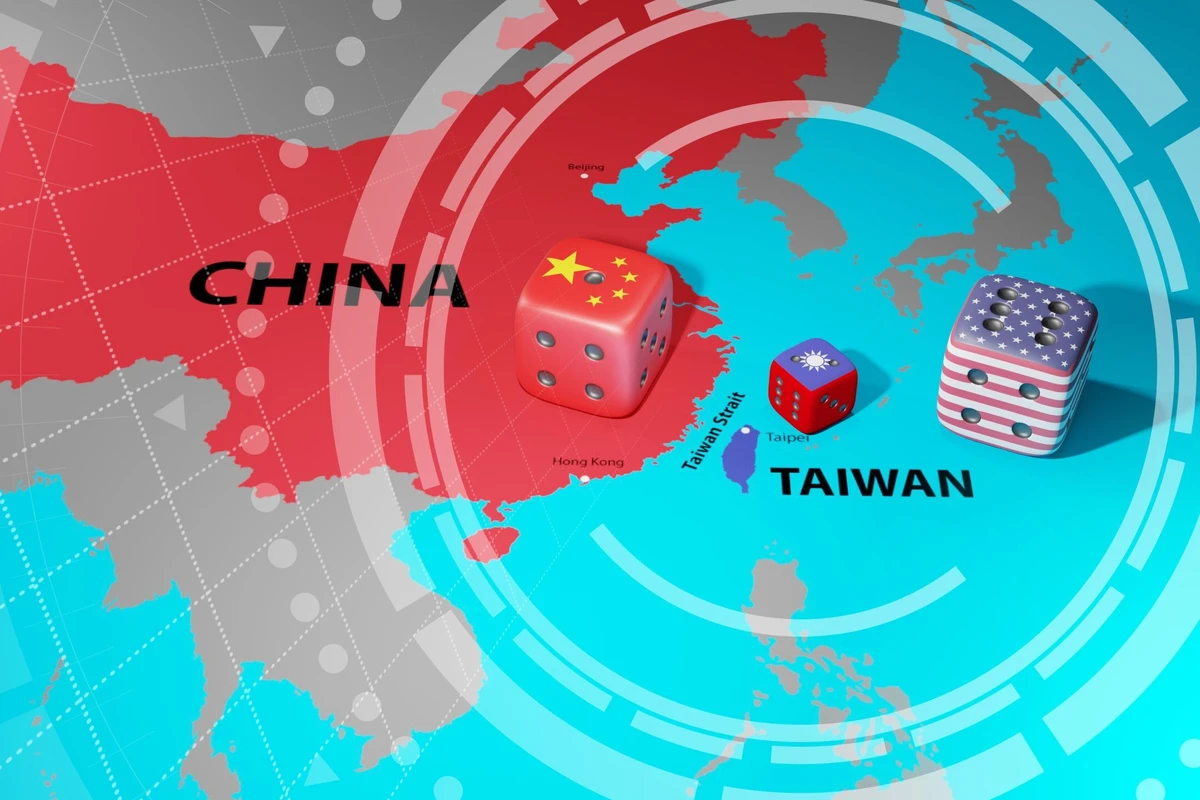China’s Machiavellian moves: Dividing Taiwan’s political landscape for control
The lifting of a ban on imports of pomeloes and agricultural and fishery products by China following the visit of Chinese Nationalist Party (KMT), principal opposition party has raised suspicion over its intentions. The move is being seen as a brazen attempt by the Chinese leadership to undermine Taiwan’s sovereignty by leveraging economic incentives and political alliances with opposition parties like the KMT.
China initially imposed a ban on imports of pomeloes and frozen mackerel from Taiwan in August 2022 as a retaliatory response to the visit to the then-US House of Representatives speaker Nancy Pelosi to Taipei. It overturned its decision in 20 months but did not inform the Taiwanese. The announcement of lifting of ban to the opposition party rather than the government has raised suspicion over China’s real intention.
China’s earlier offer of prefabricated buildings to Hualien County in the aftermath of the devastating earthquake early in April illustrated China’s strategy of using humanitarian aid as a tool for political influence. By channelling assistance through Red Cross China sought to portray itself as a compassionate neighbour while subtly reinforcing its presence and influence in Taiwan.
However, in the name of humanitarianism China prepared a calculated agenda aimed at sowing discord and manipulating Taiwan’s political dynamics. Understanding the real intention, the Taiwanese government rebuffed Beijing’s offer of help.
China’s efforts to court the KMT and other opposition parties through economic incentives and political alliances served to undermine Taiwan’s sovereignty and weaken support for the current administration.
As far as KMT is concerned, Taiwan’s oldest party that has lost its appeal in the recent elections is more than willing to appease China. Former KMT legislator, Jason Hsu said that its narrative on engaging with China is less favoured by today’s young voters and added that in the past, they have seen efforts by members to be more modern, but those efforts were turned down.
China has been promoting KMT for years and made it literally dependent on it. KMT has been taking risk of playing into the hands of China and furthering its agenda of reunification under Beijing’s terms. The ruling DPP’s on the other hand is sceptical of China’s overtures. As China continues to exploit divisions within Taiwan’s political landscape, the DPP remains vigilant in resisting external interference and promoting a unified stance against Beijing’s encroachment.
Lifting a ban on imports of pomelo and agricultural and fishery products, the China General Administration of Customs justified by saying that the decision was being made “on the basis of scientific assessments in accordance with China’s laws and regulations,” and that Beijing hoped to “actively promote the peaceful development of cross-strait relations on the basis of adherence to the ‘1992 consensus’ and opposition to Taiwanese independence.”
Experts refused to buy Beijing’s theory. Instead, they said, the move was aimed at weakening Taiwan’s resolve for independence, paving the way for eventual reunification under Beijing’s control. Ironically, news reports emanating from Taiwan indicated that 22 Chinese People’s Liberation Army (PLA) aircraft and four PLA Navy vessels were detected around Taiwan soon after the visit of 17 Chinese Nationalist Party (KMT) lawmakers to Beijing. Available reports indicated that 12 of the 22 aircraft had crossed the median line of the Taiwan Strait and entered Taiwan’s northern air defence identification zone, including an unspecified number that flew as close as 37 nautical miles (68.5km) to Keelung.
Political analysts said that China has a political agenda in Taiwan which revolved around three key objectives: undermining Taiwan’s sovereignty, promoting reunification on its terms, and bolstering support for the ‘1992 consensus’ as a prerequisite for cross-strait dialogue.
China has been pursuing reunification with Taiwan on its own terms, emphasizing the ‘1992 consensus’ as a precondition for any dialogue. By endorsing the KMT’s adherence to this consensus, China has been making efforts to marginalize voices, advocating for Taiwan’s distinct identity and sovereignty. This strategy is in alignment with China’s longstanding policy of ‘one country, two systems,’ which offers autonomy to Taiwan within a unified China but under Beijing’s ultimate authority.
China’s political agenda in Taiwan has involved bolstering support for the ‘1992 consensus’ as a means of consolidating its influence over cross-strait relations. By promoting the consensus as a basis for dialogue and opposing Taiwanese independence, China has planned to shape the narrative surrounding Taiwan’s status and to restrict avenues for international recognition of Taiwan as a sovereign state.
Overall, China’s political agenda in Taiwan is characterized by a combination of economic inducements, political alliances, and ideological alignment aimed at advancing its interests while undermining Taiwan’s sovereignty and independence aspirations.
In light of China’s persistent efforts to influence Taiwan’s political landscape, it is imperative for both the ruling DPP and opposition KMT to prioritize Taiwan’s interests above partisan considerations. By uniting against external pressure and upholding Taiwan’s sovereignty, political parties can strengthen Taiwan’s resilience and fortify its position on the global stage. Only through unity and resolve can Taiwan effectively navigate the complex challenges posed by China’s divisive tactics and safeguard its democratic values for future generations.













